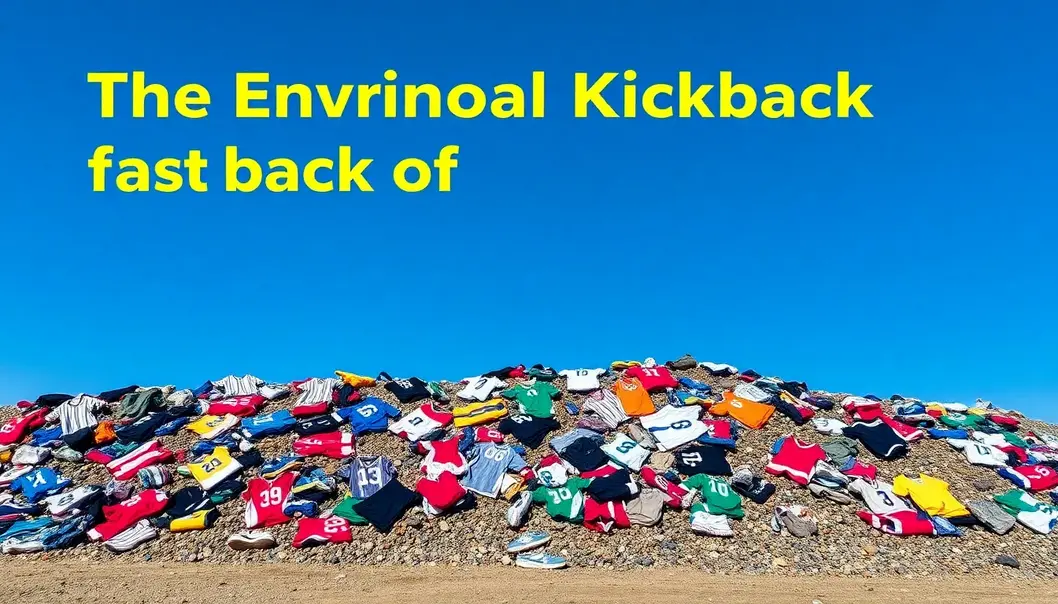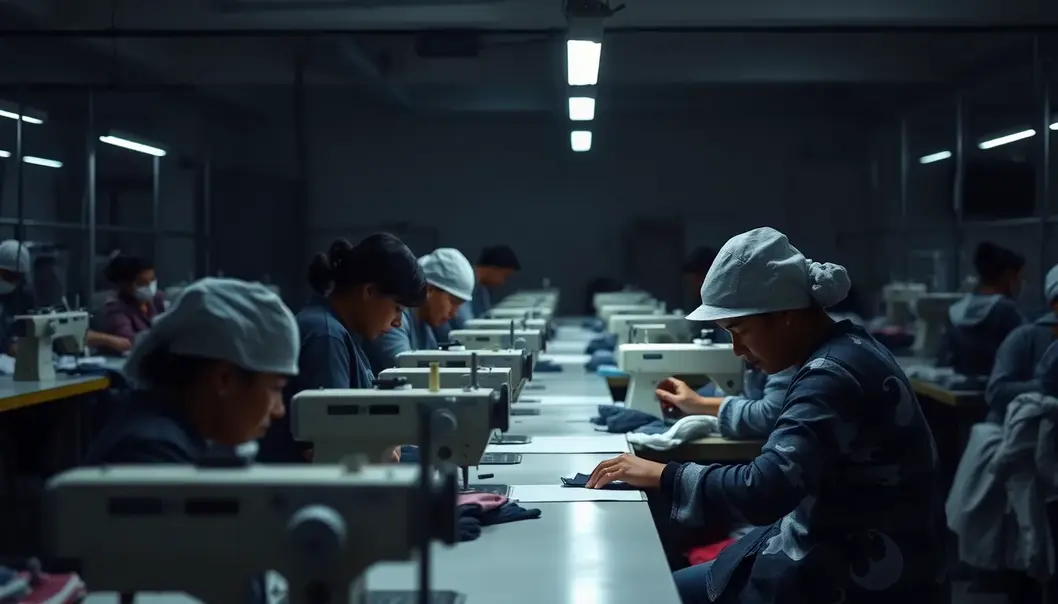Fast fashion has revolutionized the way we dress, offering trendy, affordable clothing to millions. For sports fans, the thrill of donning a favorite team’s apparel or snagging the latest athleisure wear is unparalleled. However, the rapid turnover of styles and the industry’s insatiable demand for low-cost production raise pressing ethical concerns. This article delves into the impact of fast fashion on our planet and society, advocating for a more conscious consumption mindset, especially poignant for those passionate about sports. Together, we’ll explore how our buying habits can champion sustainable and ethical practices without compromising on our love for team spirit.
The Environmental Kickback of Fast Fashion

The realm of fast fashion perpetuates a cycle of rapid consumption and disposability, a model that, unfortunately, extends to athletic apparel. Such a system paints a bleak picture for environmental sustainability. The carbon footprint of fast fashion is immense, notably because of the emphasis on mass production. Athletic apparel, requiring specific materials like polyester and spandex, exacerbates the issue given the high energy demand during production, leading to significant greenhouse gas emissions.
Water usage presents another pressing concern. The production of synthetic fibers often necessitates extensive water resources, and the dyeing process contaminates water bodies. This is particularly concerning for sportswear, where colorfastness and durability are prioritized. The resultant pollution of water bodies not only affects aquatic life but also communities dependent on these waters for their livelihood.
Waste, inevitably, follows as the third crucial environmental impact. The life cycle of fashionable athletic attire is notoriously short-lived; styles change with each sports season, rendering last season’s apparel obsolete. The discarded clothing often ends up in landfills, contributing to the pollution burden. Furthermore, sports clothing made from synthetic fibers can take significantly longer to decompose than natural fibers, compounding the waste problem.
A divergence arises when comparing sustainable brands to their fast-fashion counterparts. Sustainable athletic brands emphasize eco-friendly materials, such as organic cotton or recycled polyester, and employ cleaner production methods. They prioritize durability over disposability, encouraging longer use. Moreover, these companies promote recycling initiatives or offer take-back programs, further reducing waste.
For sports enthusiasts, whose purchasing decisions are frequently driven by team loyalty and brand allegiance, a pivot towards sustainable choices is necessary. By opting for brands with transparent sustainability practices, fans can leverage their purchasing power to signal demand for responsible apparel. Awareness campaigns, like promoting the story of environmentally responsible athletes or teams, can help influence fan bases to adopt more conscientious consumption habits. Ultimately, it is about embracing a culture of mindfulness towards the environmental repercussions of our sportswear choices, aligning the spirit of athletics with sustainability values.
Sweat Equity: The Human Cost of Fast Fashion

The glossy promises of affordable athletic wear often overshadow a harsh reality faced by garment workers. Fast fashion’s rapid turnover relies heavily on laborers who toil in subpar conditions. The human cost is steep, with garment workers, many of whom produce athletic apparel, enduring grueling working hours for below-living wages. These workers, often in developing countries, describe working environments where rights and dignities are frequently compromised.
Working conditions in fast fashion factories are notoriously poor. Safety standards are frequently inadequate, and workers lack access to essential facilities like clean water and proper sanitation. For laborers producing athletic wear, which demands specialization due to specific performance fabrics and designs, pressure for perfection is high. Yet, the industry often provides little opportunity for skill development or fair compensation, enforcing a vicious cycle of exploitation.
Wages in the fast fashion sector remain persistently low. Many workers earn less than a living wage, meaning they cannot afford basic necessities for themselves or their families despite working excessive hours. This economic plight is compounded by the lack of legal protections, making it nearly impossible for workers to organize or demand better conditions. Companies maximize profits by keeping labor costs minimal, ignoring the moral imperative to recognize garment workers as integral to the success of sports apparel brands.
These injustices extend beyond financial exploitation. Social implications include the vast divide between the workers’ realities and the luxury experienced by those at the top of the supply chain. The stark contrast highlights systemic inequities that perpetuate poverty and disenfranchisement among those who produce the goods that promote health and well-being in sports.
Sports fans, often driven by a deep sense of community and loyalty, hold the potential to advocate for ethical changes in this domain. By supporting fair trade and ethical brands, they can push the market towards more just practices. Fans have the power to demand transparency and accountability from brands they love.
Athletes and teams have started to use their platforms to highlight these issues, inspiring fans worldwide. Some sports figures have publicly criticized unethical practices and refused endorsements from brands that do not meet ethical standards. Such actions not only draw attention to garment workers’ plights but also catalyze shifts in consumer behavior.
An inspiring example is a renowned basketball team’s collective decision to exclusively wear gear from a brand committed to sustainable and fair production. This move garnered significant media attention and inspired fans to reconsider their purchasing habits. By choosing to stand against exploitative practices, these athletes demonstrate how influential sports figures can challenge systemic injustices and motivate broader change.
As more sports enthusiasts and figures champion the cause of garment workers, there is hope for meaningful reform in the fast fashion industry. Ethical consumption and advocacy become powerful tools to ensure that competitive passion in sports aligns with respect and fairness for all involved in bringing athletic dreams to life.
Final words
As sports fans, we must recognize the power we wield in shaping industry practices. Our choices can contribute to a more sustainable and ethical fashion landscape. By supporting brands that prioritize environmental and human rights, we not only align our passion for sports with a commitment to global well-being but also set a precedent for future generations. Let us champion sustainable practices, ensuring that our love for team spirit extends beyond the field to embrace the world we inhabit.
Join us in supporting brands that care about the planet and the people. Discover our sustainable sportswear collection today!
Learn more: https://www.ethicalsportsgear.com
About us
Ethical Sports Gear offers a wide range of sustainable and ethically-produced athletic apparel. Our collection is designed for the conscious sports fan who values both performance and responsibility. We ensure that every piece of clothing is made with environmentally-friendly materials and produced under fair labor practices, so you can wear your team colors with pride and purpose.

